Clutha Inquiry: Engineer's fears over helicopter maintenance
- Published
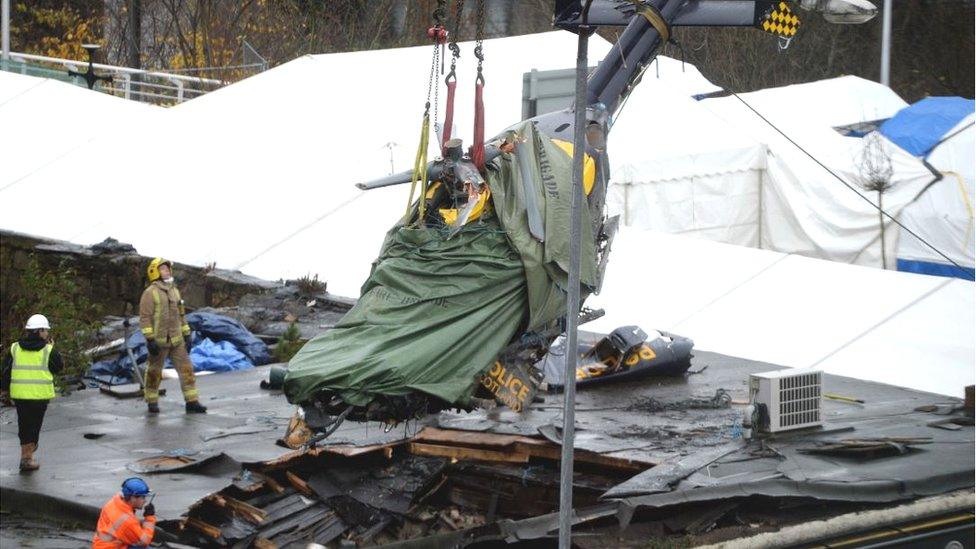
A Bond Air Services engineer shared concerns about the firm's helicopter maintenance in a handover the day before the crash
An engineer described the level of maintenance carried out on helicopters in Glasgow as "an accident waiting to happen", the Clutha helicopter crash inquiry has heard.
Paul Booth wrote his concerns in a shift handover to management.
He was a licensed helicopter engineer with Bond Air Services, the operators of the aircraft which crashed into Glasgow's Clutha pub in November 2013.
An inquiry heard he wrote his remarks the day before the crash.
Mr Booth's handover read: "I am extremely concerned at the way we are having to carry out in depth maintenance on our aircraft at Glasgow.
"It is an accident waiting to happen."
Mr Booth said he had written this at the end of a busy shift and had not expected anything like the Glasgow crash to happen.
Fuel probe issue
On Wednesday the inquiry heard that a pilot had reported fuel fluctuations in the aircraft to Mr Booth in the days before the crash.
Mr Booth said he did not have time to change the fuel probe that week and put it in a handover to management at Bond.
He said he wanted his managers to know how he felt at the end of a busy shift. He said he got no response.
Mr Booth said he would stay on after his shift as he went above and beyond but had said sometimes when he came off his shift he was absolutely shattered.
The incident with the fuel probe was reported on 24 November 2013 but was not entered into the defects log.
If it had, according to the manual, it would have to have been replaced by 27 November. By the time of the crash on 29 November, the part had still not been replaced.

Clutha inquiry: The evidence so far

Crash pilot
The inquiry has previously heard evidence from police observer PC Alan Graham, who had flown with the Clutha crash pilot David Traill.
PC Graham said he had been in a police helicopter with Mr Traill when a red fuel warning light came on. PC Graham said Captain Traill acknowledged the warning and seemed "happy with his fuel calculations" - he also described him as "very competent".
PC Alan McLaren, 45, earlier told the inquiry he agreed that Captain Traill was "a stickler for procedure".
Air traffic controller Andrew Campbell has also given evidence - he said Air Traffic Control at Glasgow Airport had no concerns about the flight.
In April the inquiry heard that the aircraft did not have a flight recorder, which meant there was no data about when fuel warnings came on and the length of time they stayed on.
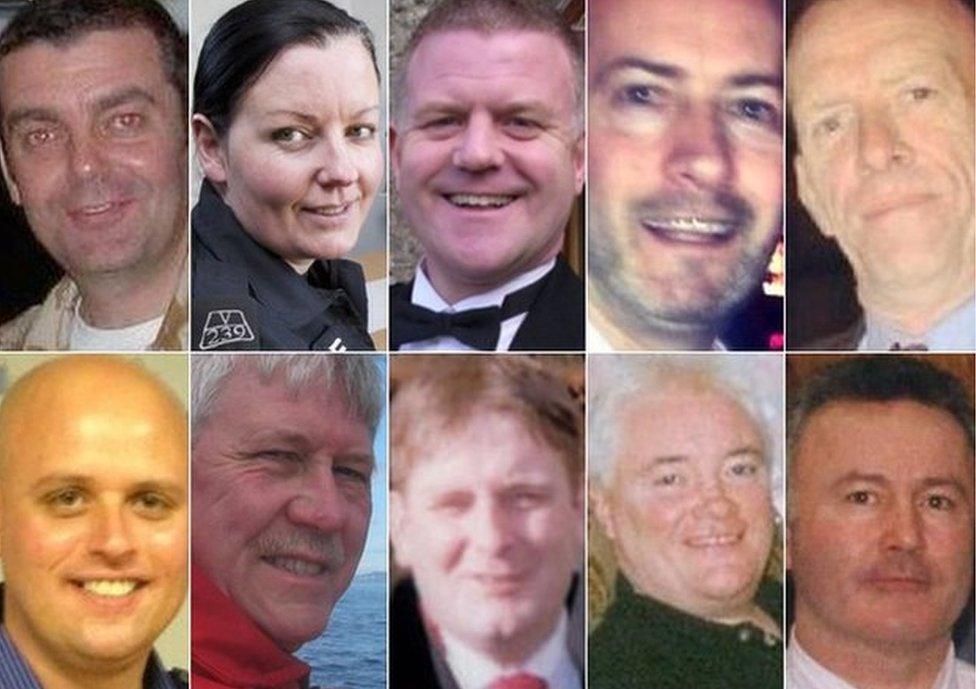
(Top: L to R) David Traill, PC Kirsty Nelis, PC Tony Collins, Gary Arthur, Samuel McGhee (Bottom: L to R) Colin Gibson, Robert Jenkins, Mark O'Prey, John McGarrigle, Joe Cusker
The inquiry began with a minute's silence to honour the victims of the 2013 tragedy.
On the third day, a joint minute was read out which agreed the times and causes of death.
Pilot David Traill, 51; PC Tony Collins, 43; and PC Kirsty Nelis, 36, lost their lives in the crash along with seven customers who were in the bar on Stockwell Street.
They were Gary Arthur, 48; Joe Cusker, 59; Colin Gibson, 33; Robert Jenkins, 61; John McGarrigle, 58; Samuel McGhee, 56; and Mark O'Prey, 44.
The inquiry, which is being held at Hampden Park in Glasgow, continues.
- Published18 April 2019
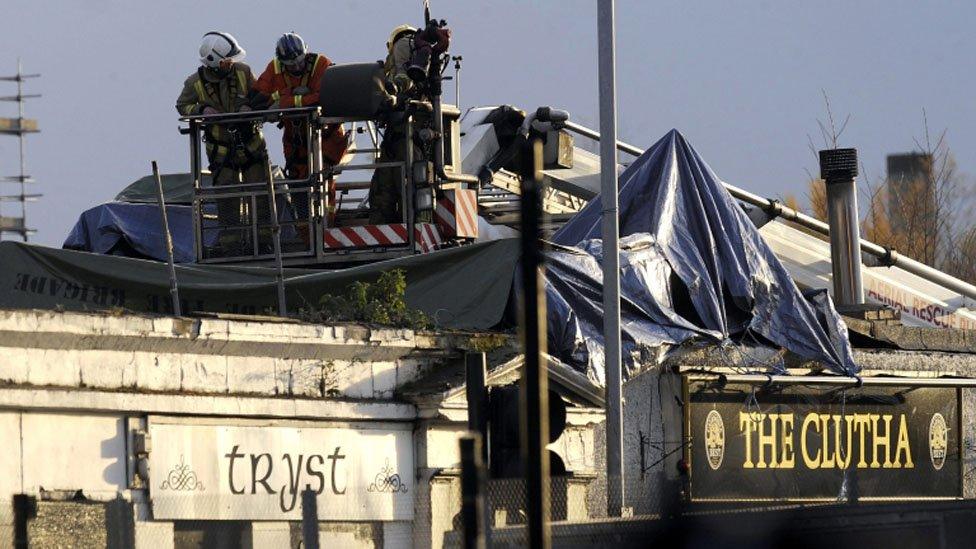
- Published17 April 2019

- Published10 April 2019
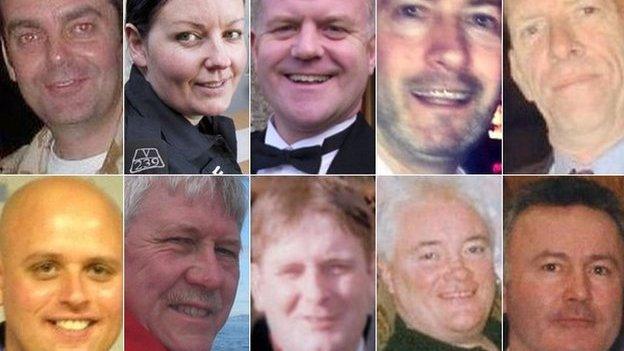
- Published8 April 2019
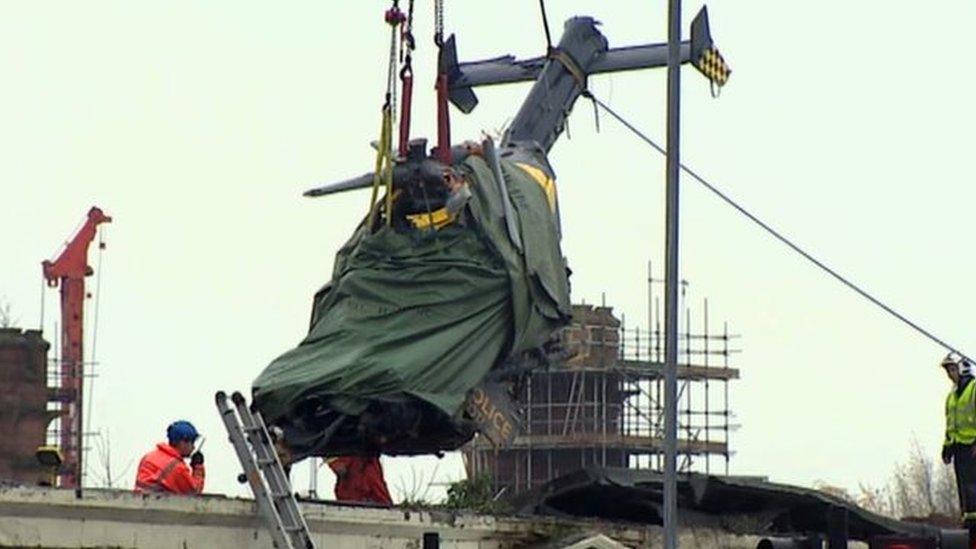
- Published3 April 2019
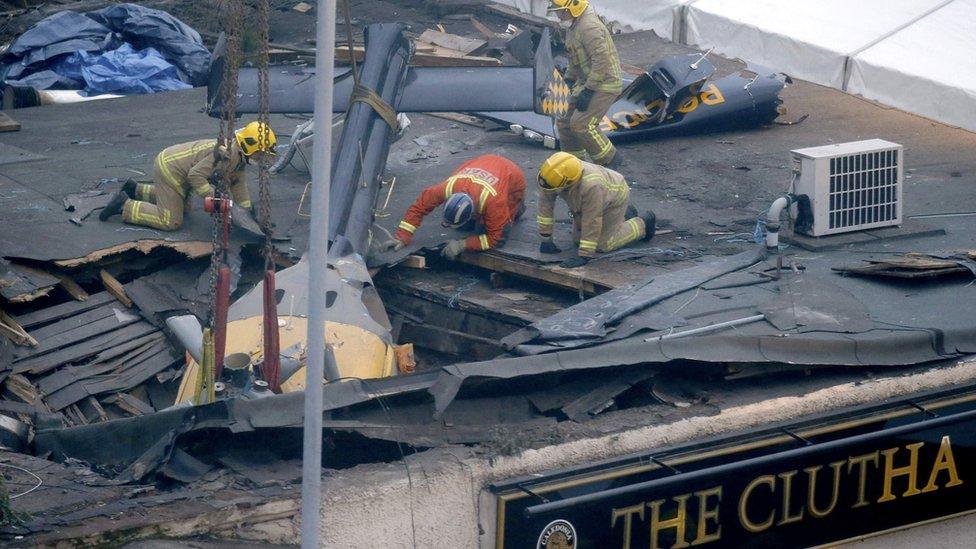
- Published23 April 2019
